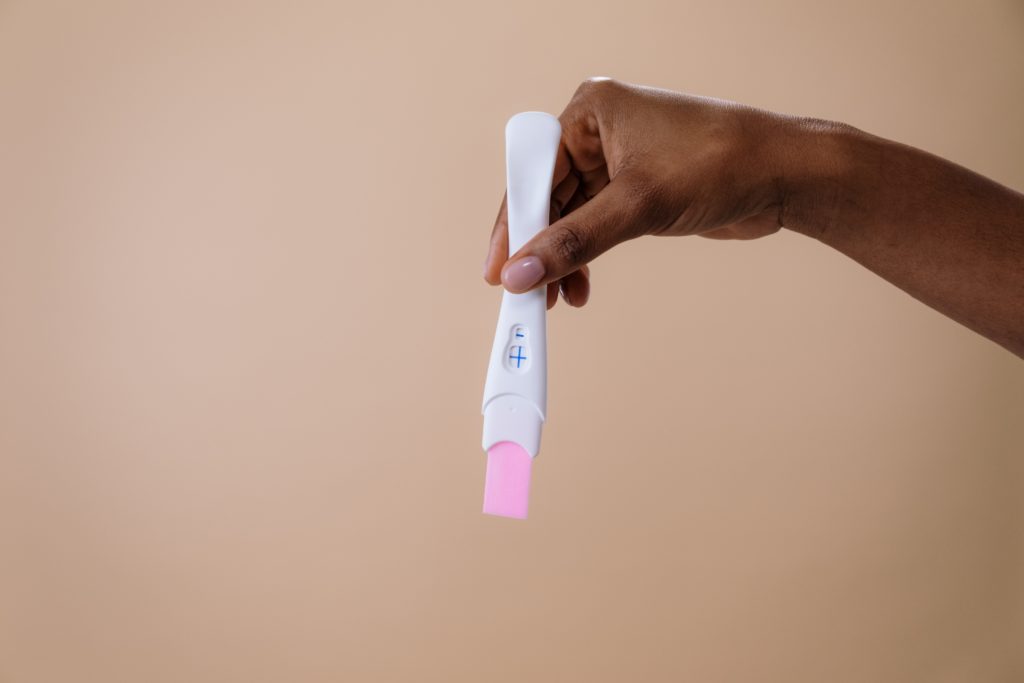Quick search
CTRL+K
Quick search
CTRL+K


Since 2010, the Global Law Experts annual awards have been celebrating excellence, innovation and performance across the legal communities from around the world.
posted 2 years ago
After the decision in Dobbs vs Jackson, reversing the progressive interpretation of Roe vs Wade by the U.S Supreme Court, I am reminded of our campaign for law reform in Australia, when it became clear that only complete decriminalization of abortion will fulfil commitments to eliminate discrimination against women and ensure women’s reproductive rights are met through access to evidence-based, transparent, and fair health care.
In March 2017, the Northern Territory (‘NT’) government modified the law on termination of pregnancy (‘TOP’) by amending the Medical Services Act (‘MSA’) with the effect of partial decriminalisation. Previously, the law required attendance at hospital, consent of both parents for minors under 16, and agreement of more than one practitioner to the termination. It also criminalised the use of any abortifacient for early medical abortion (‘EMA’). The NT was the last jurisdiction in Australia not to have legal access to EMA. The Termination of Pregnancy Reform Act 2017 (‘the 2017 Act’) decriminalises termination of pregnancy in certain circumstances. It also provides protection for women if medical practitioners have a conscientious objection, implements safe access zones around clinics to protect staff and patients, and ensures that biodata
will be provided to the Chief Medical Officer. Nonetheless, there remains scope for appropriate future reform as the law continues to criminalise abortion in some circumstances.
This law reform occurred against a background of advocacy and action by academics, health and legal professionals, and members of the public. In 2014 to 2015 we undertook a collaborative project funded by Menzies School of Health Research and Charles Darwin University on women’s health and law in the NT. We gained research ethics permission (HREC# 12–1816) to analyse over 5,000 cases of surgical termination of pregnancy. We undertook a literature review, examined the compliance of the NT legislation with international human rights obligations, and held a forum to discuss local issues viewed through the lens of women’s reproductive health rights. This included consideration of the availability of early termination by the medications, mifepristone, and misoprostol. Following the project, we continued to engage in local advocacy which came to fruition with legislative reform in July 2017.
Our work followed the 58th session of the Commission on the Status of Women which resolved progress towards achieving Millennium Development Goal 5 on improving maternal health, namely to reduce maternal death and achieve universal access to reproductive health.
The Commission noted that progress on women’s reproductive rights was slow and uneven, as well as that globally there remained an urgent need to fully achieve Goal 5 and strengthen legal systems to ensure accessible quality, comprehensive, and integrated sexual and reproductive health care services. Our project highlighted the injustice and discrimination against women seeking to terminate a pregnancy in the NT prior
to reform, and our 2015 discussion paper provided a legal and human rights-based focus for the campaign.
II HEALTH AND ABORTION
Preventing and managing unwanted and unviable pregnancies is a public health issue requiring quality health services. Public health focuses on disparities in access to health care, and legislation should work towards equity in health care provision. EMA has been available in Europe since 1988, in the US since 2000, and in other Australian jurisdictions since 2006. Mifepristone and misoprostol for EMA are approved and recommended medicines by the Royal Australian and New Zealand College of Obstetricians and Gynaecologists. EMA includes the provision of doses of mifepristone and misoprostol orally before nine weeks’ gestation. It is efficacious and well-accepted by women as a method of terminating an accidental, mistimed, unwanted, or unviable pregnancy. Very few require follow-up due to complications such as excessive bleeding or continued pregnancy. EMA is possibly as revolutionary as the oral contraceptive pill. This medicine produces an experience like a heavy menstrual period or miscarriage which general practitioners prescribe to women for use at home. This generally does not require women and girls to attend hospital, nor the input of expensive senior doctors, nor the use of surgical theatres. The reformed legislation in the NT now enables access to EMA and surgical terminations, largely provided in the public health system.
We found that the mortality rate from any type of abortion is extremely rare, and childbirth is riskier. More broadly, research findings of safety and efficacy of abortion are echoed from multiple studies globally which include hundreds of thousands of cases. Non-availability of abortion services increases maternal morbidity and mortality in
population studies. The reformed legislation in the NT assists in promoting maternal health and works towards decreasing morbidity.
III RIGHTS OF WOMEN IN THE CONTEXT OF TERMINATION OF PREGNANCY
The International Covenant on Economic, Social and Cultural Rights (‘CESCR’) guarantees all persons the right to equal protection under the law without discrimination based on sex, and the Convention on the Elimination of Discrimination Against Women (‘CEDAW’) stipulates that governments must take all appropriate measures to eliminate discrimination against women in health care. The UN Committees for CESCR, CEDAW, the International Covenant on Civil and Political Rights (‘CCPR’), the Convention on the Rights of the Child, and the Convention against Torture, have all made recommendations to governments to consider revising laws that criminalise and penalise abortion. Women should have access to the highest attainable standard of physical and mental health. Taking steps to achieve the full realisation of this right should include those necessary for the reduction of the stillbirth rate and infant mortality, as well as for the healthy development of the child. The U.S. and Australia take the domestic instruments generally without using these interpretive tools, condemning constitutional law to an exercise in historical fiction rather than informed governance and developed administration.
The modern and necessary approach is that women and girls should have rights to make their own informed sexual choices, bear the consequences of their choices, and survive through the provision of appropriate health services in pregnancy and for their children to have an enhanced survival rate through appropriate spacing. This includes
access to health care services, including those related to family planning, and appropriate services in connection with pregnancy, confinement, and the post-natal period. A restrictive abortion law exacerbates the inequality that results from the biological fact that women carry the exclusive health burden of contraceptive failure and the consequent moral, social, and legal responsibilities of gestation and parenthood. Failing to provide appropriate and confidential healthcare in the context of reproductive health, we found unambiguously constitutes a form of discrimination against young women and girls. The goal in this context is for maternal mortality and morbidity to be reduced, the dignity of women to be enhanced, and their reproductive self-determination to include access to health care and the benefits of scientific progress.
Further, by virtue of the UN Convention on the Rights of the Child, there is a positive obligation in international law to ensure that children are not subjected to cruel, inhuman, or degrading treatment. Failing to provide adequate and confidential medical services, in the context of reproductive health to children who are at risk of harm via the consequences of failing to properly treat unwanted and/or unviable pregnancies, constitutes an irreparable violation of the child’s physical and psychological health. Therefore, we suggested in our findings that it is beyond argument that international law requires an effective and proactive domestic mechanism that operates to protect women and girls from unnecessary health risks with quality, comprehensive, and integrated sexual and reproductive health care services, commodities, information, and education mechanisms that are adequately resourced.
Intrinsic to these legal obligations is the requirement that states must not only respond to the need for reproductive health care but respond in an effective way.
VI EVIDENCE BASED, TRANSPARENT and FAIR ACCESS TO HEALTH CARE
The effect of the unreformed legislation in the Northern Territory before 2017 denied women their health rights to patient autonomy in abortion health care and criminalised women, children, and health practitioners. The indirect effect of lack of access to abortion was that some women and female children were forced to carry to term with the consequent effect on health and well-being that an unwanted and unplanned pregnancy may bring. Barriers to appropriate treatment increased as medicine had progressed in an environment where the law remained static. The consequence was that women’s access to termination was prohibited by the very laws which were designed to lawfully create voluntary motherhood; the law simultaneously acted as a barrier to women’s access to services and as a tool to ensure that women have effective access to health services.
These types of unreformed legislation can also lead to defensive clinical practice and referrals to psychologists to conform with the perceived intent of the law. Mandatory counselling is discriminatory, humiliating, intrusive, and wasteful of health resources. Research evidence and clinical practice concede that few women require counselling, whereas all women have a right to information to assist in making a pregnancy choice. Abortion laws should articulate clearly how they facilitate access to health care. Conscientious objections to providing abortion information, counselling, assessment, or treatments puts personal morals ahead of professional obligations. Fair and reasonable access to health care should be a well-accepted notion. We argued that sex-based discrimination occurs due to the failure of the state which it is obliged to remedy.
Women seeking to terminate their pregnancies experience difficulties accessing public health services and, in most states and territories, use private health services at personal financial cost sometimes in combination with personal private health insurance if they are wealthy enough to have it. Our research, the project forum and community debate,
focused attention on these issues. We found that there was support for the use of approved abortifacients in the NT, but public debate often returned to the 1960s and 1970s agenda without recognising women’s right to abortion which was already legalised. Politicians were split almost equally over the issue of reform but overall there was political will to at least partially improve women’s health rights in the NT and thus mitigate the risks we suggested that continuing regulation can create for the future.
VIII SOLUTIONS AND CONCLUSIONS
Reviewing Australia’s international obligations, the legislative frameworks against a background of campaigning brought us to the conclusion that there should be national uniform legislation to completely decriminalise abortion in Australia. Given the considerable effort it took to change the legislation in the NT, such reform may be a while away. In the meantime, women’s health rights are not comprehensively observed, although in the NT the 2017 Act enables some improvement in evidence-based access to health care, more transparent access to health care, and fairer access to health care. The NT compared to the US is a tiny jurisdiction so perhaps it was the sense of community that allowed for some progress. The U.S. Supreme Court might argue that this is an argument for state regulation of abortion but condemning the women of the U.S. to risky child selection in the face of progressive, logical and scientifically valid precedent cements a new era of discrimination and harm.
Taken largely from our 2018 article in the Griffith Journal of Law and Human Dignity here <https://griffithlawjournal.org/index.php/gjlhd/article/view/1025/982>
Author


There are no results matching your search.
Resetposted 20 hours ago
posted 3 days ago
posted 3 days ago
posted 4 days ago
posted 7 days ago
posted 1 week ago
posted 1 week ago
posted 2 weeks ago
posted 2 weeks ago
There are no results matching your search.
ResetFind the right Legal Expert for your business
Sign up for the latest legal briefings and news within Global Law Experts’ community, as well as a whole host of features, editorial and conference updates direct to your email inbox.
Naturally you can unsubscribe at any time.
Global Law Experts is dedicated to providing exceptional legal services to clients around the world. With a vast network of highly skilled and experienced lawyers, we are committed to delivering innovative and tailored solutions to meet the diverse needs of our clients in various jurisdictions.